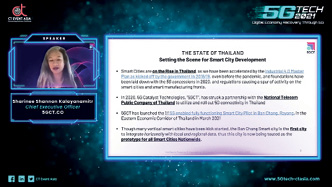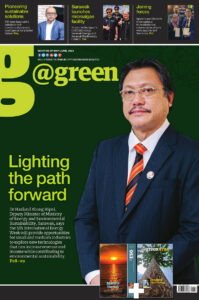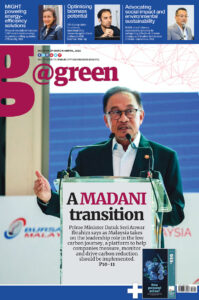The 5G Tech 2021 conference witnessed various discussions on smart cities, with 5G being the key enabler. Sharinee Shannon Kalayanamitr, the Chief Executive Officer of 5G Catalyst Technologies (5GCT), in one of the speaker sessions, shared about the implementation of smart cities in Thailand.
“In Thailand, there’s a digital promotional agency called DEPA that has categorised it (smart city) into the following: smart governance, smart energy, smart living, smart people, smart environment, smart economy and smart mobility.”
She said in the last couple of years, there had been a rise in digital transformation straight from the top of the government of Thailand. On top of that, smart city initiatives in the country were accelerated by the Industrial 4.0 Master Plan and the 5G concessions in 2020.
“We (5GTC) were able to strike a partnership with NT, the national telecom provider in Thailand, to help them monetise 5G and specifically the two spectrums they have, which are the 700MHz and 26GHz. As we know, the 26GHz one is primarily used for robotics, high need for low latency, and a large amount of IoT devices to be connected.
“So for us, one of the big use cases that we discovered with NT was smart cities in Thailand. Then, in March this year (2021), we were able to launch the pilot project in Ban Chang, Rayong (manufacturing hub in Thailand),” she said.
Sharinee then shared with the participants some of the features introduced by the company in the Ban Chang pilot project, which emphasised safety and security.
Before sharing the video of the project, she stated some general challenges in Thailand’s smart city rollout, which were:
1. Awareness issue – understanding smart cities and buy-in
2. The gap in the market – only LEGO approach and not holistic, SILO without sustainability in mind
3. Fragmented understanding of smart city benefits to citizens leading to weak support
4. No alignment and unclear priorities in multiple city projects
5. Difficulties in applying regulatory frameworks to oversee the use of new technologies and data








